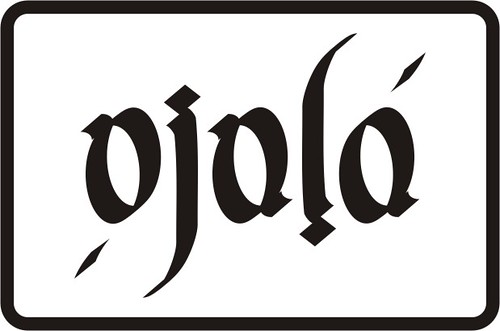Hace unos años oí por primera vez la canción Ojalá
por Silvio Rodríguez. Fue la música que me captó al principio: la guitarra
simple de Nueva Trova acompañada por la voz apasionada de Silvio… Con repetición,
empezó a afectarme más el poder de las palabras: la letra me parecía trágicamente romántica, una
historia de amor perdido o fallado que el poeta empeña en “borrar” de su mente. La idea de preferir morir al dolor de un amor
que no le corresponde me parecía noble y romántica. Probablemente escuché la canción
cien veces con esta idea en la mente.
I Heard the song Ojalá by Silvio Rodríguez several years
ago. At first, it was the music that
grabbed my attention: The simple guitar
that distinguishes the style Nueva Trova accompanied by Silvio’s passionate
voice… On repeated listening, the power of the words began to affect me more
and more: the lyrics seemed tragically romantic, a story of lost or failed love
that the poet tries to “erase” from his mind. The idea of preferring death to
the pain of an impossible love seemed so noble and romantic. I probably
listened to the song a hundred times with this idea in my mind.
Sin embargo, esta mañana, mientras lavaba los
trastes, escuché la canción otra vez. Se me ocurrió que tal vez la letra no era
lo que tanto parecía durante años cuando escuché la estrofa: Ojalá que el deseo/ se vaya tras de ti,/ a
tu viejo gobierno/ de difuntos y flores.
Nevertheless, as I was washing dishes and listening to the song this morning, it seemed to me that perhaps the lyrics weren’t what they had seemed to be for years. When I heard the lines. I wish that the desire would go away with you/ to your old government/ of dead men and flowers.
¿Por qué mencionó un gobierno? Sabía que Silvio Rodríguez es un cantante cubano. Desde luego, ¿pudiera esconder esta linda canción algún mensaje político?
Why did he mention the government? I knew that Silvio Rodríguez is a Cuban singer, of course. Could this beautiful song be hiding a political message?
¿Qué pasa con la
estrofa? Ojalá pase algo/que te borre de
pronto:/una luz cegadora,/un disparo de nieve. Me parece revolucionarias
las palabras “borre” y “disparo”, que invocan una revolución violenta.
Decidí hacer una investigación. Primero busqué las palabras del propio poeta. Silvio explica la canción así: “Ojalá yo la compuse a una mujer que fue, podríamos decir, mi primer amor.” Él explica que era “una muchacha mucho más evolucionada que yo” y que los dos habían separado porque ella decidió estudiar medicina, y tomó otro sendero en la vida. Para Silvio, este hecho lo dejó con muchas preguntas de como hubiese sido si no hubieran separado nunca: “porque fue un amor frustrado, tronchado por las circunstancias, por la vida, no fue una cosa que se agotara, pues se me quedó un poco como un fantasma.”
I decided to do some research. First, I looked up the poet’s own words. Silvio explains the song like this: “I composed Ojalá for a woman that was, we could say, my first love”. He explains that she was, “a young woman who was way more evolved than I”, and that the two of them had separated because she decided to study medicine, and took a different path in her life. For Silvio, this event left him with lots of questions of how it could have been if they had never separated: “because it was a frustrated love, torn apart by circumstance, by life, it wasn’t like (our love) had run out, so I was left with a bit of a ghost.”
Entonces, tal vez deba aceptar las palabras del poeta. Es una historia de amor. Sin embargo, hay mucha gente que se oponga en las redes. Y yo mismo seguía sin cuadrar la frase: “a tu viejo gobierno/ de difuntos y flores.” Por esta frase, he encontrado varias posibles explicaciones. Que la mujer era danesa, y referiría a Dinamarca y Hamlet. O que era una metáfora a su pasión y desilusión por el gobierno de Fidel. O que referiría a México, el gobierno más viejo de las Américas. O a los Estados Unidos. O España. O que referiría al gobierno de Pinochet (aunque fue compuesto en 1969, cuatro años antes de que Pinochet suba al poder). Al final, nadie sabe sino el poeta mismo. Y él se opine (por lo menos públicamente) por el amor.
So perhaps I should take the poet at his word. It is a love story. Nevertheless, there are a lot of people with other opinions on the web. I myself continue to wonder about the phrase: “to your old government/ of dead men and flowers”. For this line, I found several possible explanations. One claimed that the woman was Danish, and that he was referring to Denmark and Hamlet. Or that it was a metaphor for his passion and disappointment in Fidel. Or that it referred to Mexico, the oldest government in the Americas. Or the United States. Or Spain. Or that it referred to the Pinochet regime (even though it was written in 1969, and Pinochet did not ascent into power until ’73). In the end, nobody knows but the poet himself. And he’s saying (at least publically) that it’s about love.
Below I offer you an English translation so that you can enjoy the beautiful mystery of this work:
Ojalá que las hojas—I wish that the leaves
no te toquen el cuerpo—wouldn’t touch your body
cuando caigan—when they fall
para que no las puedas—so that you can’t
convertir en cristal.—turn them to glass
Ojalá que la lluvia—I wish that the rain
deje de ser milagro—would stop being a miracle
que baja por tu cuerpo.—as it falls along your body
Ojalá que la luna—I wish the moon
pueda salir sin ti.—could rise without you
Ojalá que la tierra—I wish that they earth
no te bese los pasos.—wouldn’t kiss your footsteps
Ojalá se te acabe—I wish that it would end
la mirada constante,---the constant look
la palabra precisa,--the precice word
la sonrisa perfecta.—the perfect smile
Ojalá pase algo—I wish something would happen
que te borre de pronto:--that would erase you in an instant
una luz cegadora,--the blinding light
un disparo de nieve.—a shot of snow
Ojalá por lo menos—I wish at least
que me lleve la muerte,--that death will take me away
para no verte tanto,--So that I don’t have to see you so much
para no verte siempre—so I don’t have to see you always
en todos los segundos,--in every second
en todas las visiones.—in every vision
Ojalá que no pueda—I wish that I couldn’t
tocarte ni en canciones.—touch you even in songs
Ojalá que la aurora—I wish that the sunrise
no dé gritos—would not scream out
que caigan--falling
en mi espalda.—on my back
Ojalá que tu nombre—I wish that your name
se le olvide—would be forgotten
a esa voz.—to this my voice
Ojalá las paredes—I wish the walls
no retengan tu ruido—would not retain their sound
de camino cansado.—of tired roads
Ojalá que el deseo—I wish that desire
se vaya tras de ti,--would go away with you
a tu viejo gobierno—to your old government
de difuntos y flores.—of death and flowers
Ojalá se te acabe—I wish that it would end
la mirada constante,---the constant look
la palabra precisa,--the precice word
la sonrisa perfecta.—the perfect smile
Ojalá pase algo—I wish something would happen
que te borre de pronto:--that would erase you in an instant
una luz cegadora,--the blinding light
un disparo de nieve.—a shot of snow
Ojalá por lo menos—I wish at least
que me lleve la muerte,--that death will take me away
para no verte tanto,--So that I don’t have to see you so much
para no verte siempre—so I don’t have to see you always
en todos los segundos,--in every second
en todas las visiones.—in every vision
Ojalá que no pueda—I wish that I couldn’t
tocarte ni en canciones.—touch you even in songs




